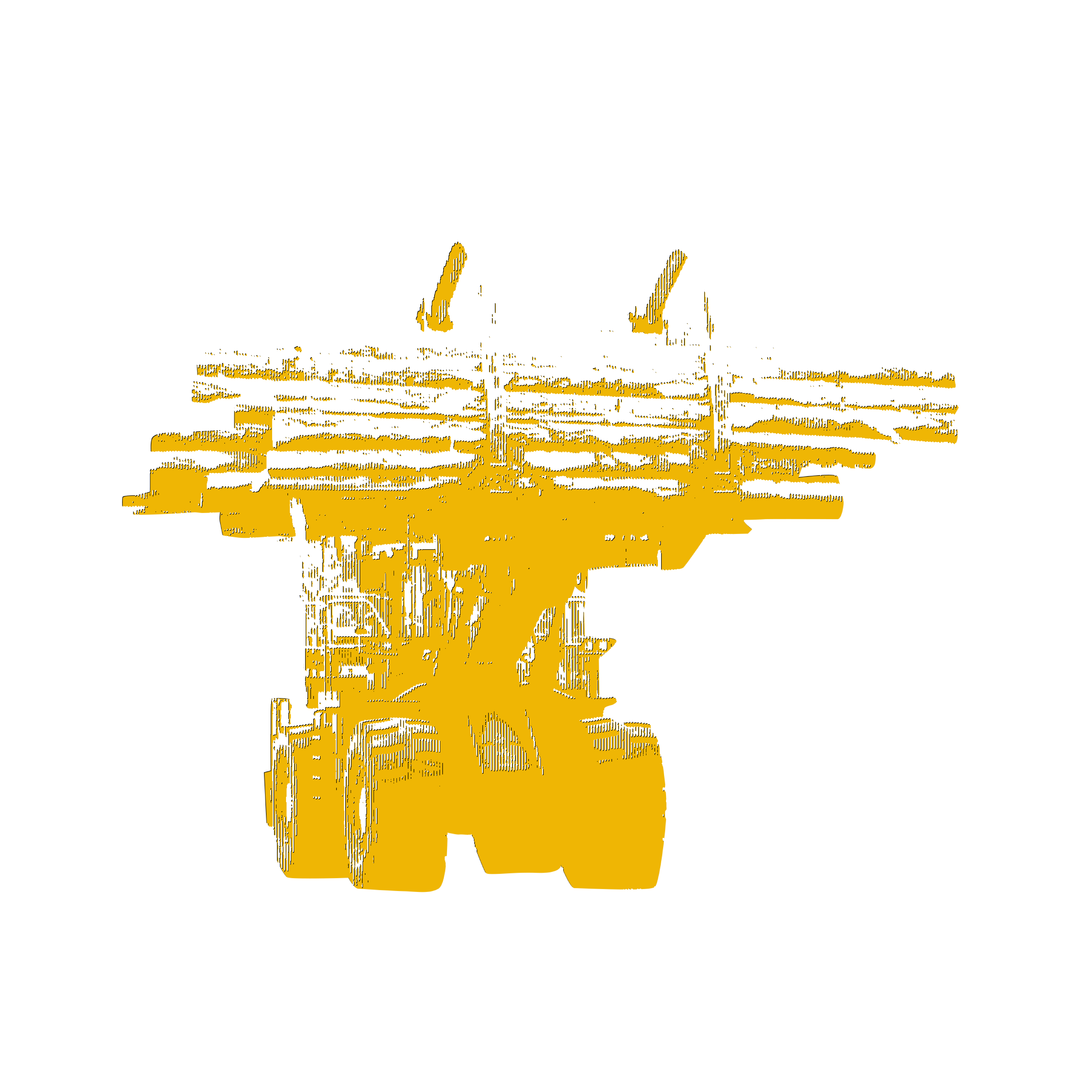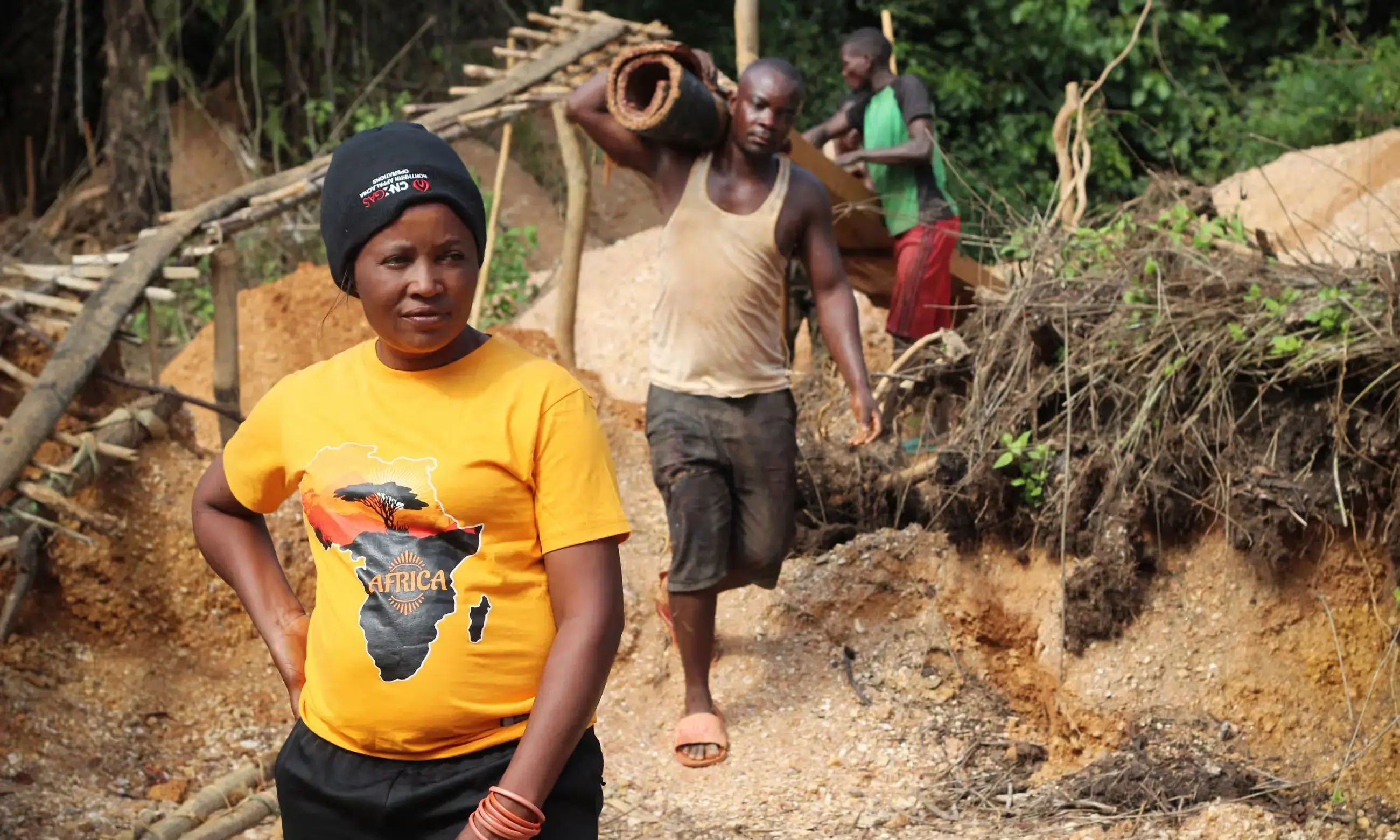
Half of the workers in the Congolese artisanal pits are women, and for years they have faced inequality and sexual harassment. Now a grassroots movement aims to change that.
It is already dusk when Annie Sinanduku Mwange gets off the moto-taxi that has brought her through the rainforest to the small mining town of Kailo. The four-hour ride from Kindu, the provincial capital of Maniema, has been exhausting, but before she rests she must first pay her respects to the town’s mayor, police chief and other officials. Mwange knows her ability to work depends on keeping the men in charge reassured of their importance.
The women she has come to meet drink tea and wait, catching up on the town’s affairs, in the courtyard of the guesthouse where she is staying. When Mwange finally sits down with them, night has fallen. The women get to business: it’s time to organise.
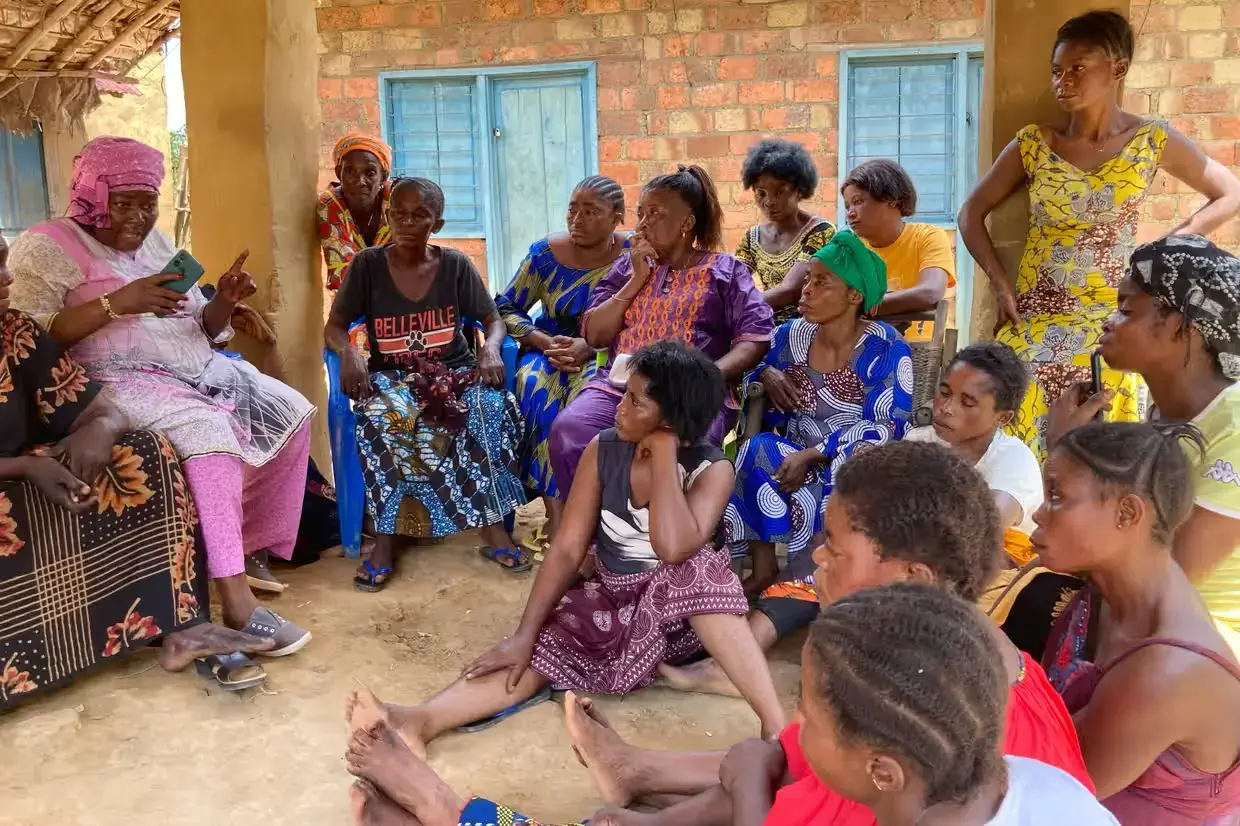
At the helm of a nationwide network of women working in artisanal mining, Mwange is poised to revolutionise the sector in the Democratic Republic of the Congo. But she needs support and funding to achieve her vision – to uplift mining communities through gender equity and women-led businesses.
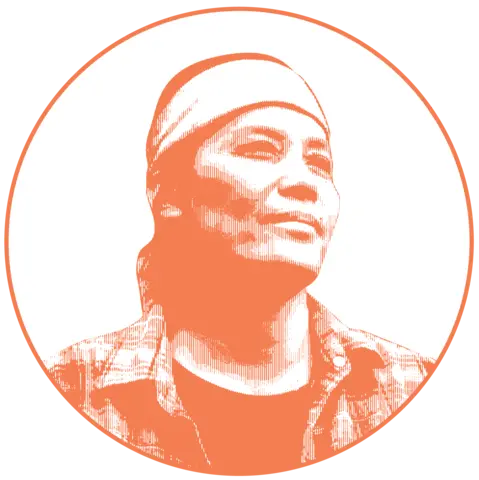
As a nonprofit journalism organization, we depend on your support to fund journalism covering underreported issues around the world. Donate any amount today to become a Pulitzer Center Champion and receive exclusive benefits!
As president of the National Network of Women in Mining (Renafem), Mwange has for years been building a movement stretching across the 26 provinces of the mineral-rich central African country, uniting women’s organisations under a single banner to fight for their rights in a sector that millions depend on for their livelihood.
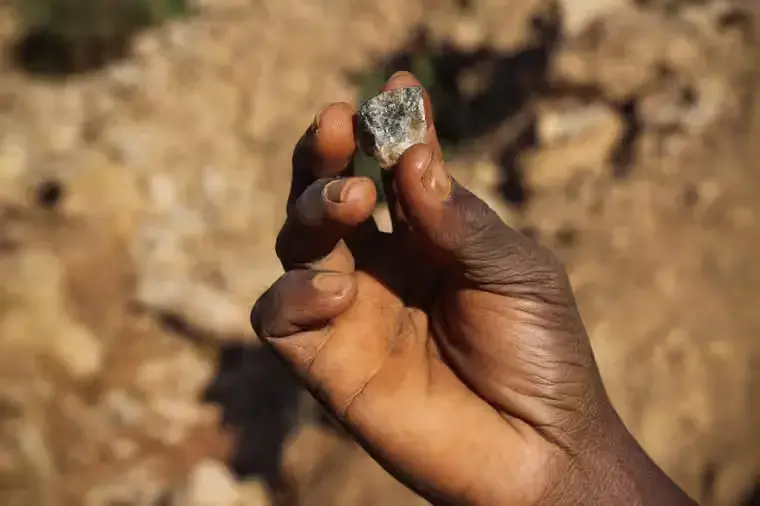
“Every single programme and effort to reform the artisanal mining sector has focused on men,” says Mwange. “Women are systematically underestimated and ignored, including by international organisations. We think women’s empowerment is the key to changing the sector and ensuring it benefits local communities.”
The women in the courtyard nod in agreement. A few years ago, Kailo was one of several dozen mining towns where Mwange’s civil society organisation, Asefa, piloted an education and training programme that has helped both to shift gender dynamics and to improve health and security around mines.
“It ranged from practical things like building toilets near the sites to informing men that, under the law, women have the right to access mining sites just like men, and that sexually harassing women working in the sites is a crime,” says Bertha Bangala, a 36-year-old miner.
The training was well received by communities – including by men – and women have reported a drop in sexual harassment, and say they feel more empowered to stand up to men and feel supported by other members of the community.
But something else has been at work too. “Now”, says Bangala, “I am a mère boss.” The rise of the “mother boss” is one of the most potentially transformative concepts that Mwange and her organisation are popularising. Although women digging in mining pits is not uncommon, most lack the physical strength to produce significant quantities of minerals, such as cassiterite, coltan or tantalum. “I can find 1kg, maybe 2kg a day, while a man will get 5 to 10kg,” says Bangala.
As a result, women have been relegated to peripheral jobs such as transporting and washing the mineral sand, making them dependent on male miners for work and payment. “If women have to ask men for the mineral sand, they are liable to be sexually exploited,” Bangala explains. “But if I own a mining pit and employ the men, now I am their boss. They can’t tell me “mavula” [undress] because they depend on me.”
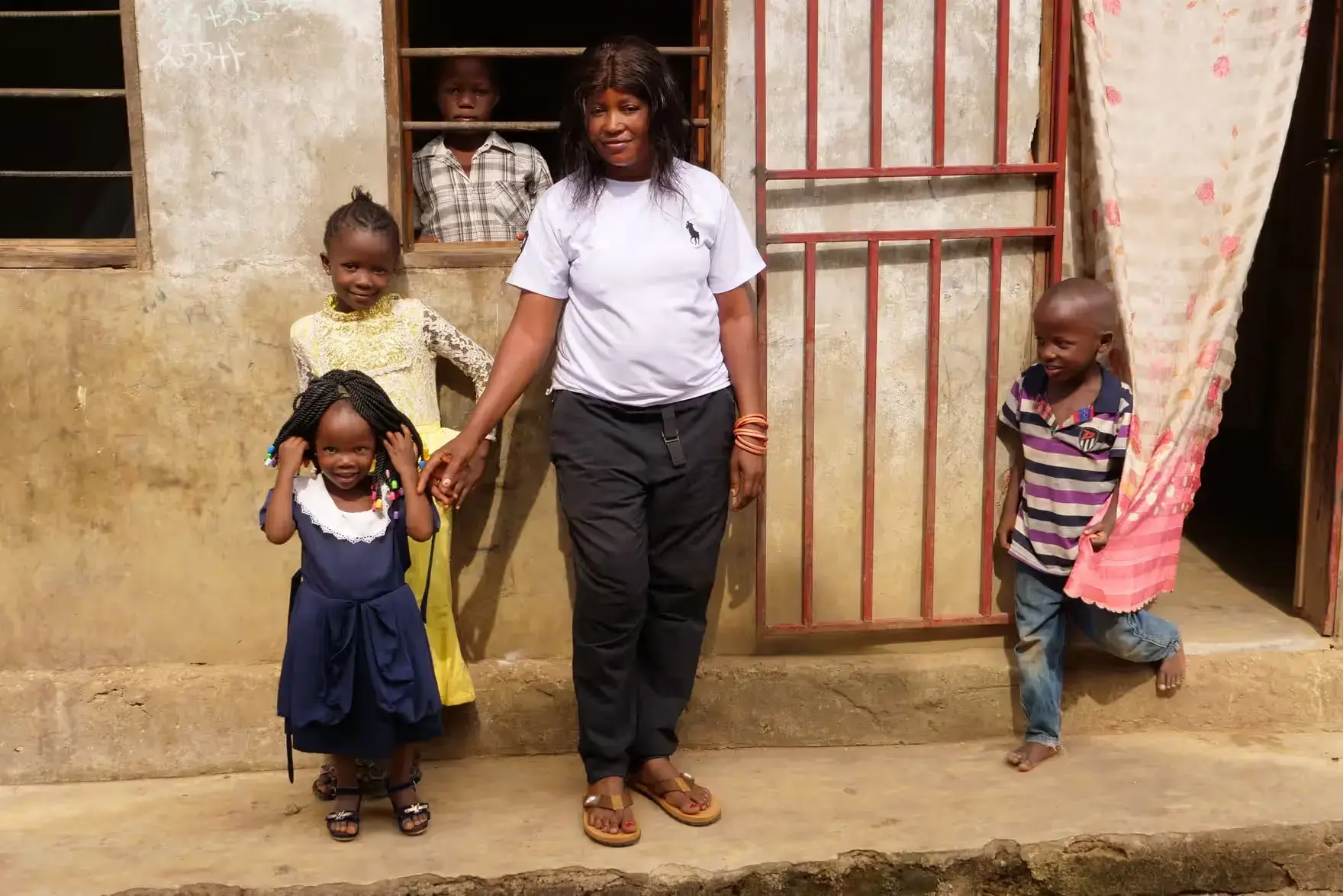
Bangala and other women in Kailo took out loans from neighbours and family members to start their businesses and now 56 of them are mères bosses, among 250 across eastern DRC.
Such loans come with steep interest rates, and Mwange’s plans include organising cooperatives to mutualise resources and create more formal structures to attract investors.
Out in the quarry, Bangala, a mother of eight, is overseeing a group of young men wielding shovels. “It makes no difference to me,” says one of the miners of being under the authority of a woman. “I get paid, that’s all that matters.”
Mwange says women becoming mères bosses is beneficial to everyone. “When we work with women, we are dealing with issues that concern the entire community,” she says.
Women make up 50% of the 2 million-strong artisanal mining workforce and are often the primary earners in their household, in charge of children’s education, the family’s health and wellbeing. “When a mother is unwell or doesn’t have financial stability, the children are affected, and so we’re talking about ensuring a good start in life for generations to come,” says Mwange.
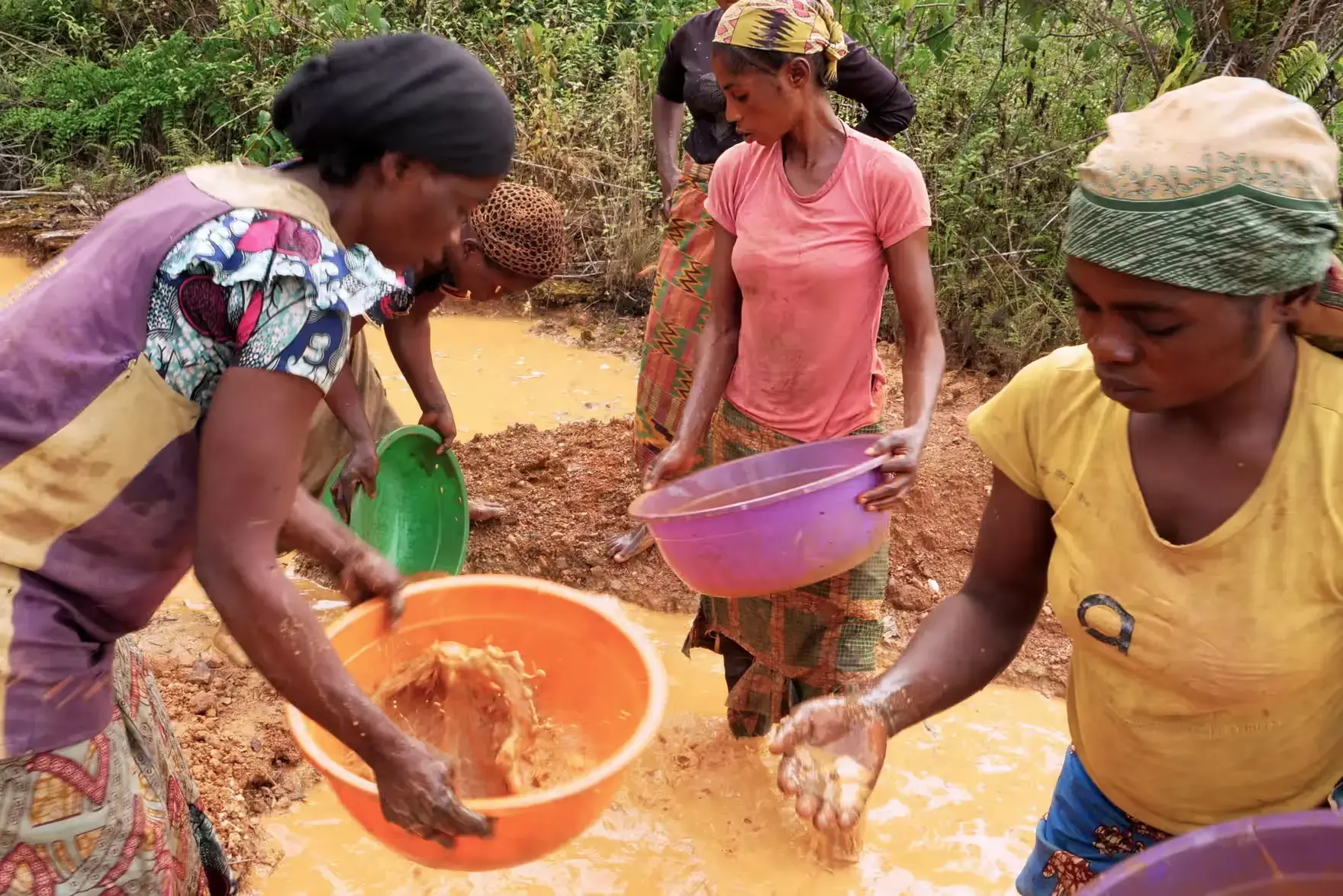
Her vocation as an activist is rooted in the aftermath of the second Congo war that ravaged the DRC between 1998 and 2002, and saw the pillaging of Congolese resources – “conflict minerals” – by Rwandan and Ugandan troops and local militias, helping to fuel their war efforts. While minerals don’t fund large armies any more in the DRC, artisanal mining remains marred by violence, exploitation, child labour and poor working conditions.
The demand for cobalt, used for electric-car batteries, has put renewed attention on the DRC’s mining industry. The country produces nearly half the minerals required in “clean energy” technologies, with the World Bank estimating that demand for these minerals will grow 500% by 2050. The mining sector, both artisanal and at corporate scale, with its myriad interconnecting issues, is entrenched in the future of the DRC.
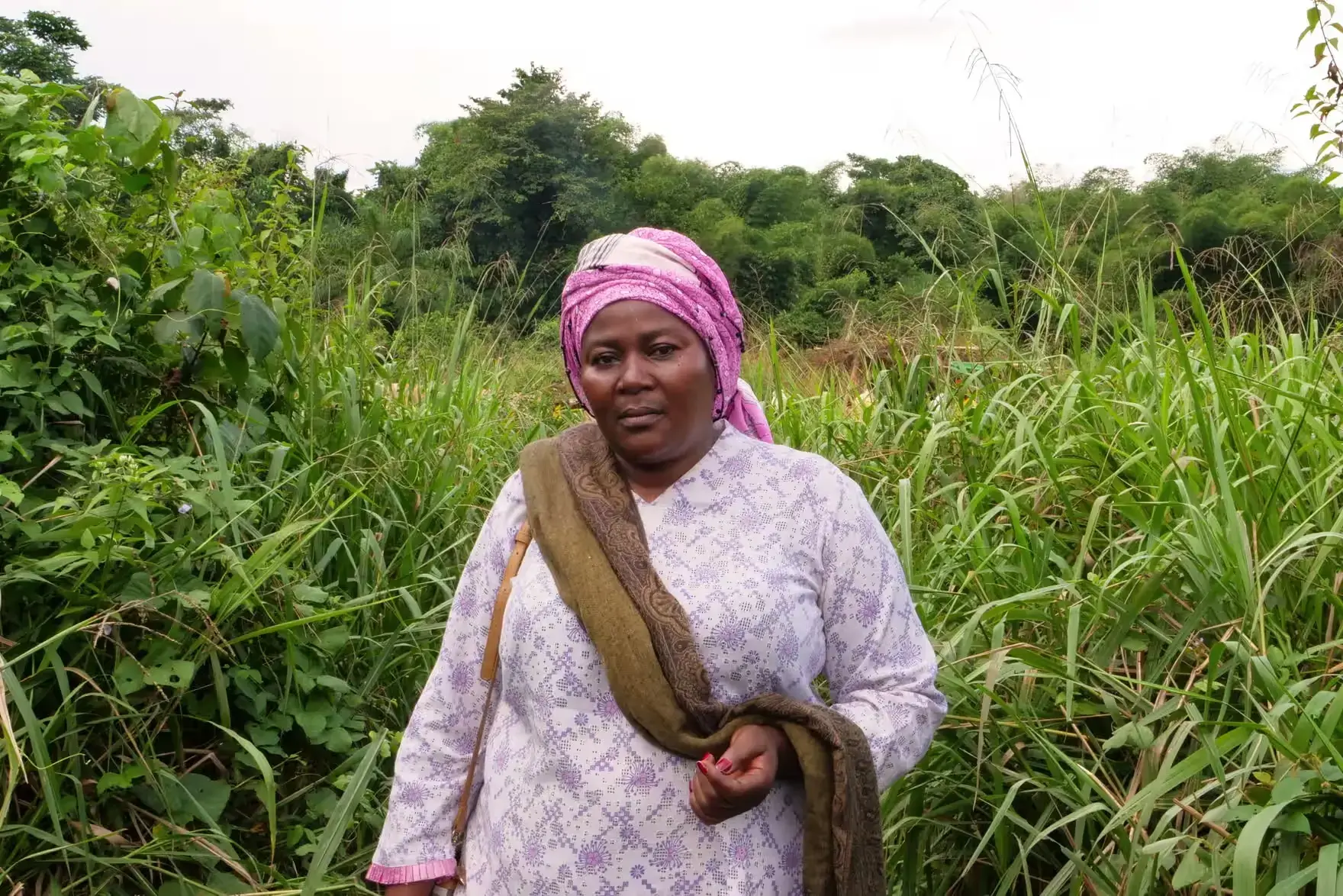
Mwange was launching a programme for orphaned children in Kailo in 2010 when she realised just how entwined mining had become with the community’s life. “When we went to the schools, we didn’t see as many pupils as we should have. The directors told us that many children were working in the mining sites,” she recalls.
Initially she tried to convince the children and their parents on a return to school. “But the children said they had to work to help support their families. If they stopped working, the family could not eat.” Destitute parents could not pay school fees either.
Impact, a natural resource governance nonprofit, recently published a report that comes to the same conclusion as Mwange’s organisation: improving women’s livelihoods is the key to eliminating child labour in DRC. Single mothers in particular are scrambling to make ends meet and are often forced to send their eldest to mines to supplement the family income, or to work alongside them.
With support from the Harvard Humanitarian Initiative, and thanks to USAid funding, Mwange’s organisation led a major study across eastern DRC’s three provinces, gathering detailed information about mining communities’ needs. “Some of their asks were evident, like access to affordable safety equipment. But we also discussed rewilding abandoned mines and putting in place protocols to avoid polluting local rivers,” says Mwange.
Her organisation is currently negotiating a budget with USAid to launch the second phase: delivering the equipment, investment and support the communities have been asking for.
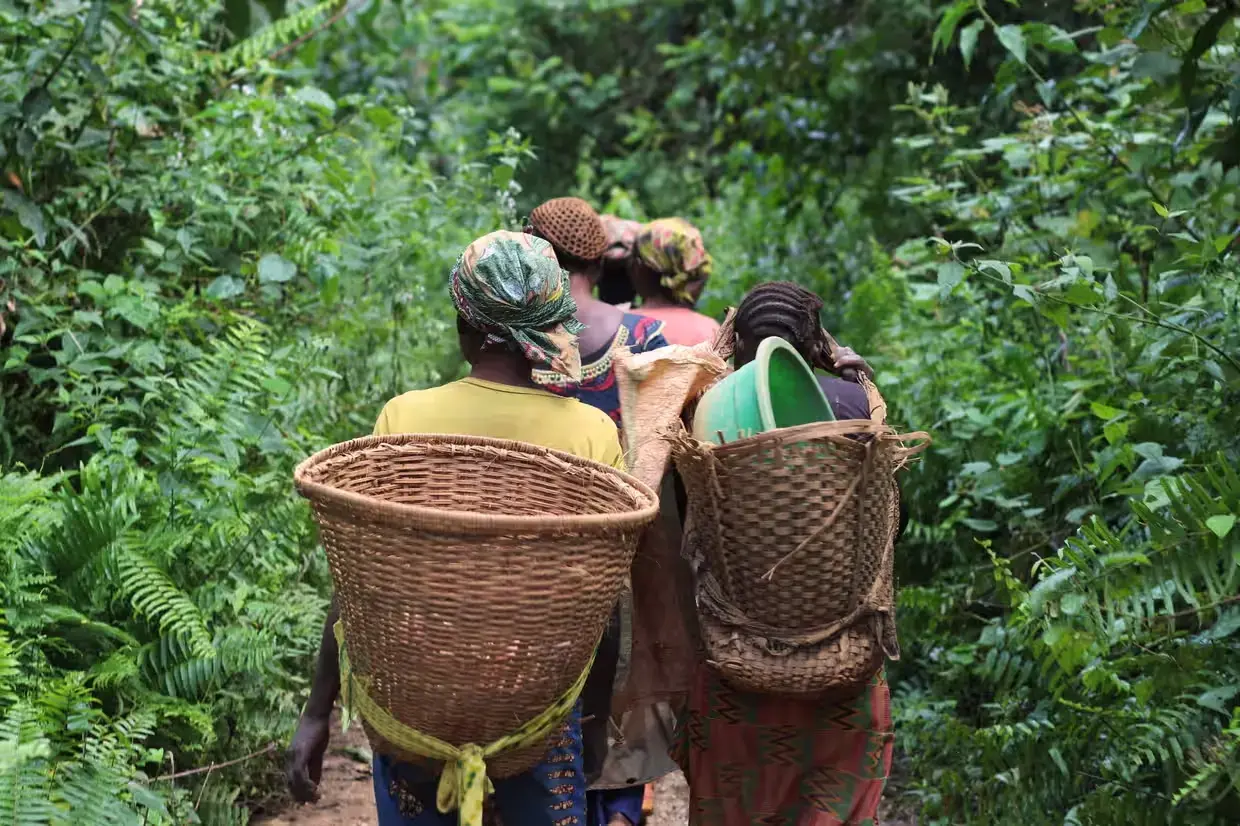
But Mwange will need more if she is to scale up the project, and women’s rights are often perceived as a peripheral problem to more “serious”, male-centric issues. “Explaining to donors why women can be central to other issues they are trying to tackle has been hard,” says Jocelyn Kelly, a director at Harvard Humanitarian Initiative, who has been championing Mwange. “Donors are scared of funding grassroots organisations,” she adds.
The mère boss plan is no magic bullet but a roadmap for hard work and investment. On her last day in Kailo, Mwange is in the guesthouse’s courtyard for one last meeting. Thérèse Bokela, 50, and Antoinette Malonga, 48, are especially vocal about the need for resources.
“We need investment,” says Bokela, who owns three mining pits but is running into funding issues as the wells have not been producing as much as she hoped. Access to loans is a challenge for artisanal communities throughout the country, but especially difficult for women – holding them back and pushing them further into poverty when their businesses face setbacks.
Mwange says her vision can quickly become self-sustaining but requires a kickstart. “Our community-based approach is strong because people are given responsibility and take ownership of the activities.
“When communities take ownership, you don’t need to put in a lot of effort,” she says. “People feel seen, and they want to show you what they are capable of.”










